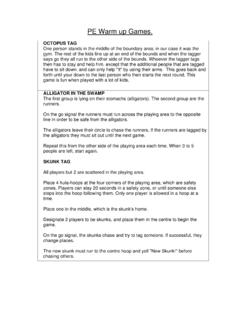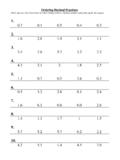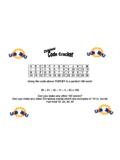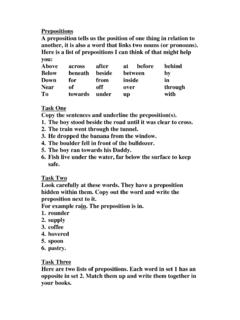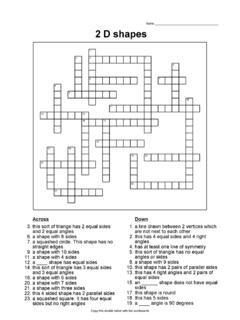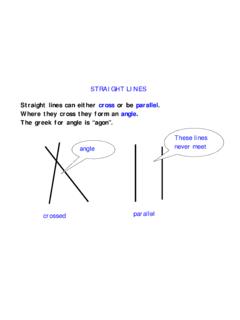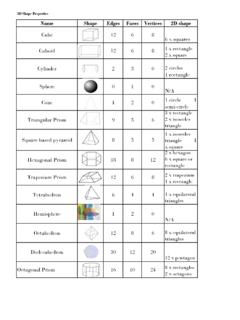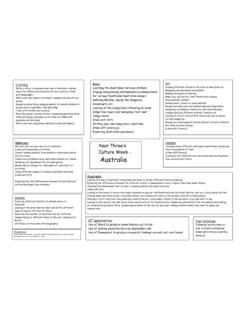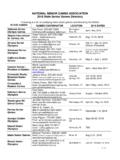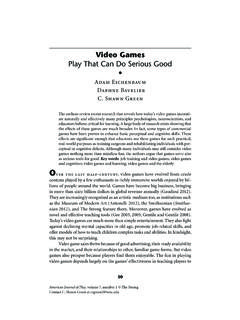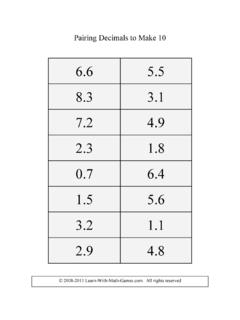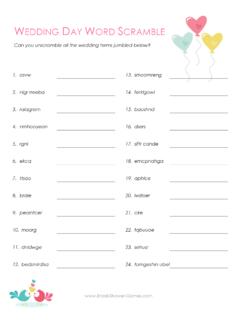Transcription of The Modern Olympic Games - Primary Resources
1 The Modern Olympic Games The Olympic Games , an international athletics competition, are held every four years at a different site. A modified revival of the Olympian Games , the Olympic Games were inaugurated in the spring of 1896. Planning for the Modern Games began in 1894, with the founding of the International Olympic Committee (IOC). The IOC enlisted the aid of sports organisations and individuals of various countries, chiefly European at first. The committee drafted policy and selected Athens, Greece, as the site of the first Olympic Games .
2 In theory, athletes of all nations are eligible to participate. Organisation The site of the Games is chosen, usually six years in advance, by the IOC. Atlanta, Georgia, was chosen as the site of the 1996 Summer Olympics. The 2000 Summer Olympics will be held in Sydney, Australia. History The first Modern Games , held in April 1896, attracted athletes from the United States, Great Britain, and 11 other nations. Only 42 events in 9 sports were scheduled for these Games . The Olympic Games scheduled for Berlin in 1916 were cancelled because of World War I; those scheduled for 1940 and 1944 were cancelled because of World War II.
3 After the Games of 1904, which had little international significance because most of the contestants were from the United States, more and more nations have entered teams in the Olympics. The total number of participating athletes has also grown, from the 285 who competed at Athens in 1896 to the approximately 10,600 who competed in Barcelona in 1992. Since the first Olympics of the Modern cycle, the number of women in Olympic competition and the number of sports and events open to competition at the Games have increased.
4 The number of medal sports at the 1992 Olympics totalled 28: aquatics (diving, swimming, synchronised swimming, and water polo), archery, badminton, baseball, basketball, boxing, canoeing-kayaking, cycling, equestrian sports, fencing, field hockey, gymnastics, judo, Modern pentathlon, rowing, shooting, soccer, table tennis, team handball, tennis, track and field, volleyball, weight lifting, wrestling, and yachting. A third significant development has been the progressively superior performance by successive generations of Olympic athletes.
5 Ceremonies An elaborate ceremony traditionally opens the Olympic Games . The athletes parade into the stadium, led by the Greek team, in honour of the founding of the Olympic Games , with the host nation marching in last. The Olympic Hymn is then played and the official Olympic flag (five interlocking rings on a white background) is raised. A runner then enters the stadium bearing the Olympic torch, initially lit by rays of the sun at Olympia, Greece, and carried to the present site by a relay of runners. The ceremony closes with the release of doves, symbolising the spirit of the Games .
6 During the Games , medal ceremonies are held to honour the medal winners in each event. The first-, second-, and third-place finishers stand on a podium and receive gold, silver, and bronze medals, respectively. Flags from the athletes' countries are raised, and the national anthem of the country of the gold medallist is played. An elaborate closing ceremony ends the Games . The Modern Olympic Games Attached is an article about the Modern Olympic Games . Below are some questions for you to answer. Use the article to help you, things that you know already, or any other information that you might be able to find.
7 Questions 1. Why are the Games held? 2. How often are they held? 3. Who takes part? 4. How do they prepare for the Games ? 5. What are the different events? 6. What prizes do the winners receive? 7. Who watches the Games ? 8. Write down any other information that you think is important. We will be using these same questions next week to find out about the ancient Olympic Games so that we can compare the Ancient and Modern Games . The Ancient Olympic Games You will find below similar questions to those that you used to research the Modern Olympic Games .
8 We are going to use these same questions to help us in our research of the Ancient Games and so that we can make comparisons with the Modern Games . In your group research try to find out the answers to these questions so that you can share what you have found with the rest of the class. Questions 1. Why were the Games held? 2. How often were they held? 3. Who took part? 4. How did they prepare for the Games ? 5. What were the different events? 6. What prizes did the winners receive?
9 7. Who watched the Games ? 8. Write down any other information that you think is important. 1. Why were the Games held? 2. How often were they held? 3. Who took part? 4. How did they prepare for the Games ? 5. What were the different events? 6. What prizes did the winners receive? 7. Who watched the Games ? 8. Write down any other information that you think is important. Question cards for Ancient Olympic Games
